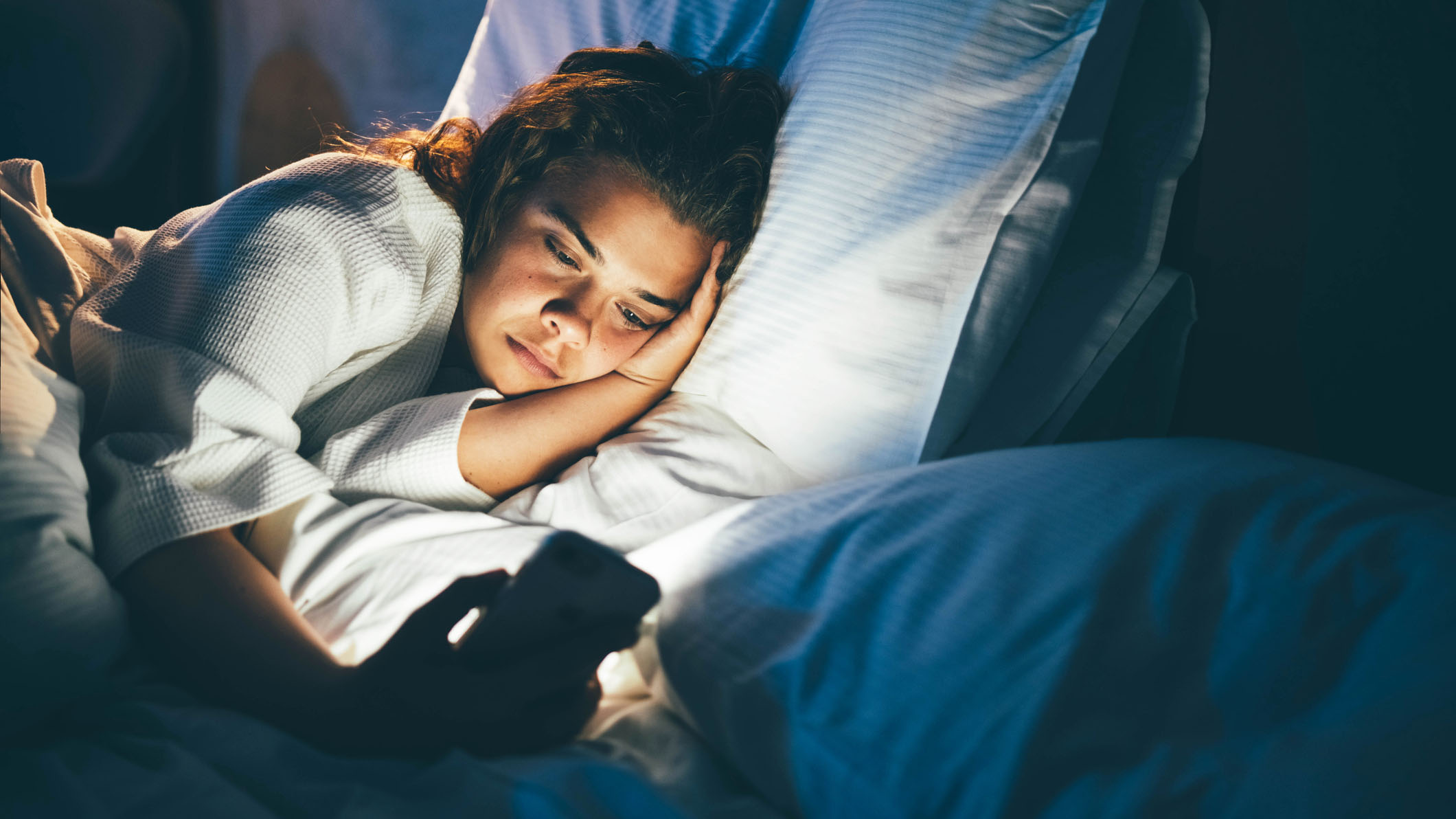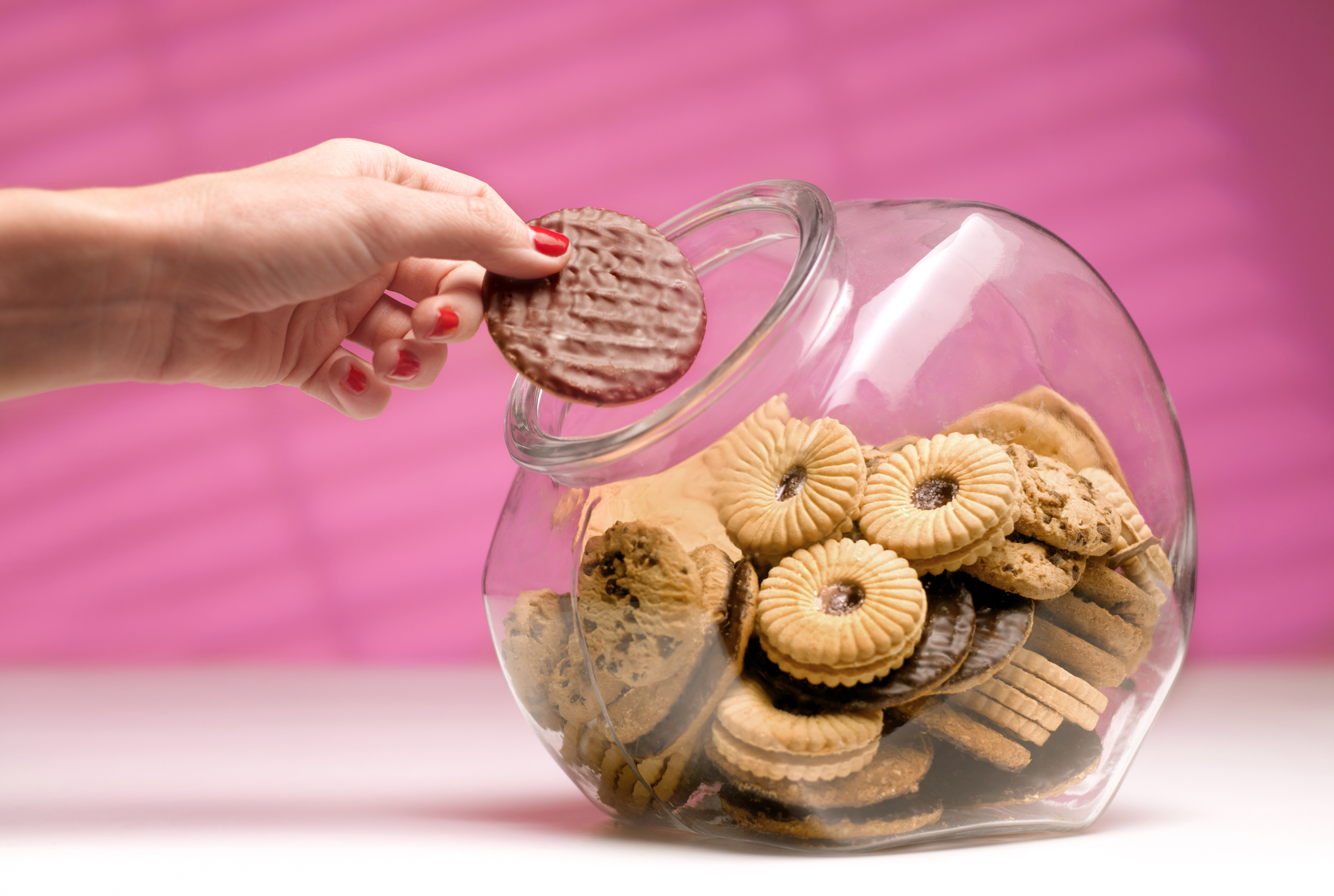
Poor sleep quality can have lasting health consequences. However, how our health is impacted in the short term is often less explored. Sleep deprivation can wreak havoc on our cognitive function, which includes our ability to focus, plan and make good decisions.
In a new post on Instagram, Dr Faye Begeti, a neurology doctor and neuroscientist, has written about how our executive function becomes impaired after a bad night’s sleep, which can lead to poor decision making throughout the day. This is why we’re more likely to reach for the cookie jar or stay up late scrolling on our phones after a bad night’s sleep. This can then perpetuate the negative cycle of poor sleep, making it increasingly difficult to break.
“When it comes to sleep, this vicious cycle is one many are caught up in but it’s hardly ever talked about,” writes Dr Bergeti, who is known online as The Brain Doctor. “Having the knowledge of what is happening is the first step.” So why are we prone to making bad decisions after a bad night’s sleep, and how can we break that negative cycle and sleep better tonight? Let’s find out.
The Executive Function and how it relates to sleep
Our executive function is a term to describe how we use our cognitive skills, which includes our ability to retain information, prioritize tasks and self-regulate our emotions and practice self control. However, sleep negatively impacts this cognitive function, which can lead to a string of poor decision making, including reaching for sugary snacks and scrolling on our phone late into the evening in an act of revenge bedtime procrastination.
“There is one key function of sleep that hardly anyone talks about and which may be having an impact on you as you are reading this post,” writes Dr Bergeti. “[The executive brain] is responsible for weighing up immediate rewards and temptations vs our long term goals,” explains Dr Bergeti. “This is where our self control comes from.
“A good night’s sleep replenishes the executive brain, meaning you wake up with a fresh supply of self-control.” Similarly, attempting to practice self control and make good decisions is that much harder when we’ve had a bad night’s sleep.
Why we reach for sugary snacks when tired
If you’ve ever absentmindedly reached for the cookie jar or indulged in sugary snacks when you’re tired, there are two very good reasons for it. Studies show that when we’re tired we instinctively reach for foods that are going to provide us with the biggest energy hit, which is the first reason.

However, studies also indicate that we’re also more likely to binge eat sugary snacks when we’re sleep deprived, as we lack the self control required not to. “Reduced sleep means reduced self-control,” explains Dr Bergeti. “This leads to scrolling, binge watching or getting distracted rather than doing what we originally intended.”
The reason we make poor decisions when tired
Self control isn’t just important for our decision making, though. It’s also a crucial part of self-regulating our emotions, which lead to emotional outbursts and general crankiness in the face of sleep deprivation. “Reduced self control means less emotional regulation, making us cranky when we are underslept,” explains Dr Bergeti.
What’s more, when we lack the self-control and the executive function to properly prioritize our day, we’re more likely to engage in revenge bedtime procrastination, which is when we stay up late to do the things that garner the greatest rewards. This can involve staying up late scrolling on our phones, explains Dr Bergeti, which perpetuates the cycle of sleep deprivation.
How to break the cycle of bad decision making and get better sleep
Knowing that we are prone to making poor decisions when we’re operating on little sleep is just part of the problem. However, it’s important to break this negative cycle of poor decision making if you want to improve your sleep quality and practice healthier habits. But how?
“Reduced sleep means more bedtime procrastination,” says Bergeti. “This then leads to even less sleep and self-control and making you more likely to procrastinate going to sleep the next day, creating a viscous cycle.”
Break this cycle by fixing your sleep schedule to ensure you get adequate rest to tackle your day. Do this by:
- Set a consistent sleep schedule: If your current bedtime is erratic, setting a consistent sleep schedule will make it easier to fall asleep and wake up at the same time each day. As your circadian rhythm becomes more established, you'll begin to feel sleepy in the run up to bed time and refreshed upon waking.
- Clean up your sleep hygiene: In addition to a consistent sleep schedule, you can improve your sleep hygiene by clearing the clutter from on and around your bed, blocking out any lights from electronics and leaving your phone in another room.
- Ensure you're sleeping on the right mattress: One of the most effective ways of improving your sleep is to ensure you're sleeping on the best mattress for your sleep needs. Practicing good sleep hygiene and a consistent sleep schedule will only work if your mattress supports your sleep style.
- Carve out time for physical activity: Our bodies require sleep for physical recovery, which is why exercising can improve our overall sleep quality. Break the negative cycle of poor decision making and sleep deprivation by carving out time for exercise within your day, even if it's just a 30 minute walk.






